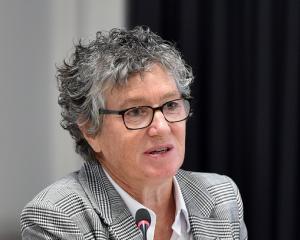Otago Polytechnic can help Bougainville rebuild from rock bottom, Bougainville governor Joe Lera says.
Mr Lera said he would be leaving Dunedin today after a week of networking to explore ways to rebuild Bougainville after ''the crisis''.
The crisis is another name for the Bougainville Civil War - an armed conflict fought between Papua New Guinea and the Bougainville Revolutionary Army in the late 1980s and '90s.
Before the crisis, Bougainville was ''the envy'' of Papua New Guinea, Mr Lera said.
''We had the best political system and administration and economy, but after the crisis we hit rock bottom.''
He met Otago Chamber of Commerce president Ali Copeman yesterday and signed a memorandum of understanding with Otago Polytechnic on Friday. He wanted an Otago Polytechnic campus to be built in Bougainville.
''That is the dream.''
After the crisis, the Bougainville population increased from 150,000 to more than 350,000.
''Of that population, 60% are youths.''
About 40% of Bougainville's youths were illiterate because of a lack of available schooling during the crisis.
A training institute could educate the illiterate for jobs in agriculture and the fishing industry, Mr Lera said.
''That's why I'm here because Otago Polytechnic is the institute that can help the Bougainville workforce.''
Education was key to rebuilding Bougainville and a campus would be built on 15ha of land in Bougainville this year so the 12 Bougainville public servants who studied at Otago Polytechnic in Dunedin in January could continue their education extramurally, Mr Lera said.
He wanted an Otago Polytechnic campus in Bougainville because its qualifications were internationally recognised, he said.
Qualified Bougainvilleans could work globally and send money home, Mr Lera said.
''They can be marketable in the world and get big money and send it back and improve the internal revenue,'' he said.
Mr Lera was elected governor in 2012 after 36 years in public service.
He had been talking with Dunedin television producer Mark Strickson about the logistics of setting up a television station.
The station would cost about $6 million to set up, Mr Lera said.
The Papua New Guinea Government gave him a $15 million grant annually, which could be used to fund the station.
''Money is not a problem.''












